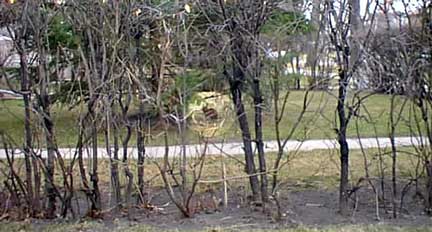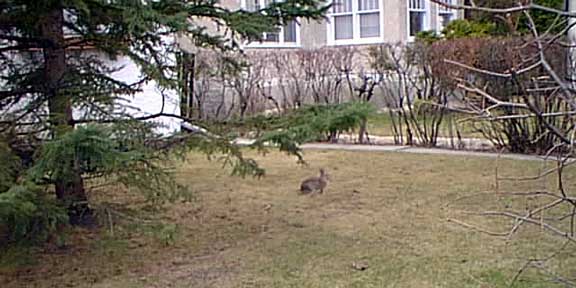 |
| FTLComm - Winnipeg, MB - April 22, 2000 |
| Both behaviour scientists and biologists are fascinated with one of the most important
features that makes it possible for life to continue in the face of adversity and
that feature is the ability to adapt. The more a species or group of species can
adapt to rapidly changing conditions, or completely different surroundings, then
those for which they have evolved, then the more successful they are. Humans have several things going for them that permit them to live and function anywhere they can satisfy the narrow parameters of their environmental needs. The most powerful tool humans have at their disposal is the ability to communicate and thus enlist the help and support of each other to carry out tasks and function in difficult surroundings. But increasingly we are discovering that other mammals who are not nearly as well endowed with social skills can also make do very nicely in places that their  natural development
never intended them for. natural development
never intended them for.This little bush rabbit is miles from unihabitted countryside and we must assume that he/she was born, grew up and lives in a busy urban community. On Friday afternoon we spotted this one on a lawn in Central Winnipeg. With dogs on leashes and only traffic as a natural predator to contend with, city rabbits can do just fine. This past fall there were several Eastern Canadian and American cities beginning to notice new residents as the sly, but extremely adaptable coyote, dropping into urban neighbourhoods to do a little hunting and looking around for suitable dwellings. The ability for animal, or plant for that matter, to live in unusual places, seems to be a key in what makes life so remarkably resilient and prolific The vast numbers of insects clearly indicates that this life form can adapt and therefore can survive. We humans are faced with dealing with climatic changes, social and economic changes that seem to come upon us in increasing frequency. Those of us who can adapt will have good lives and make the best of it, those who cling to the evolutionary past will face amazing frustration and discomfort. This does not mean we have to become cockroaches, but we do have to learn how things are changing and make suitable adjustments to our lives and expectations, if we are going to get through the trauma of change. Perhaps, most important of all is that like the coyote and the rabbit, we have got to consider alternatives. The hostile and perhaps even antisocial nature of the modern economic and financial climate of today does not necessarily mean that we all must roll over and accept fatalistically the conditions imposed on us by those who are looking out only for themselves. City rabbits and coyotes have spotted ways and means of adapting to the world they are discovering. They do not stop being rabbits or coyotes, just because the ground has pavement on it and we should not stop being caring, sharing life forms who like to work together, just because a few in our world believe in the law of the jungle and might makes right. We will always be faced with Albertans, or others who think that each individual must make it on their own, but in the past we as a culture, have successfully adapted to meet that challenge. The growth of fascism in the late twenties and thirties was left unchecked and unchallenged until only total war could stop its development and now the forces of international trade and corporate globalism are at the same stage of development as the first conflict in Spain was about to occur. Check out those urban rabbits and coyotes, and consider the simple concept "there are always alternatives." |
 |
Click "Here"
to go to Ensign Front page
Ensign, North Central Internet News, published daily by Faster Than Light Communications,
FTLComm